Click on images to enlarge
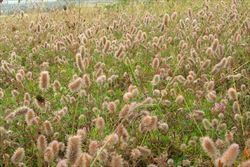
infestation (Photo: Forest and Kim Starr, USGS)
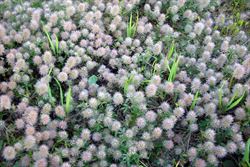
infestation (Photo: Sheldon Navie)
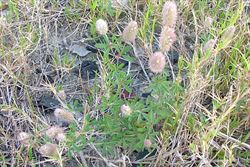
habit (Photo: Sheldon Navie)

close-up of stem and upper leaves (Photo: Sheldon Navie)
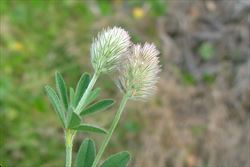
young flower clusters (Photo: Sheldon Navie)
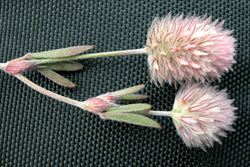
close-up of uppermost leaves and flower clusters (Photo: Greg Jordan)
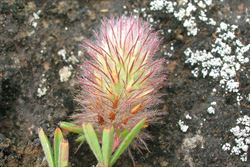
close-up of immature fruit (Photo: Forest and Kim Starr, USGS)
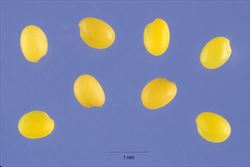
close-up of seeds (Photo: Steve Hurst at USDA PLANTS Database)
Scientific Name
Trifolium arvense L.
Synonyms
Trifolium arvense L. var. arvense
Family
Fabaceae (Queensland, the ACT, Victoria, Tasmania, and the Northern Territory)Fabaceae: sub-family Faboideae (New South Wales)Leguminosae (South Australia)Papilionaceae (Western Australia)
Common Names
hare's foot clover, hare-foot trefoil, hare's-foot clover, old field clover, pussy clover, rabbit's foot clover, rabbit-foot clover, rabbitfoot clover, rabbit-foot stone clover, rabbit's-foot clover, rabbitsfoot clover, stone clover
Origin
Native to northern Africa, the Azores, the Madeira Islands, the Canary Islands, Europe, the middle-east and western Asia.
Naturalised Distribution
Widely naturalised in southern Australia (i.e. in southern and eastern New South Wales, the ACT, Victoria, Tasmania, many parts of South Australia and in south-western Western Australia). Occasionally also naturalised in south-eastern Queensland.
Naturalised overseas in New Zealand, North America (i.e. large parts of the USA and Canada), and on some Pacific islands (e.g. Hawaii).
Notes
Hare's-foot clover (Trifolium arvense) is regarded as an environmental weed in Western Australia and Victoria.

